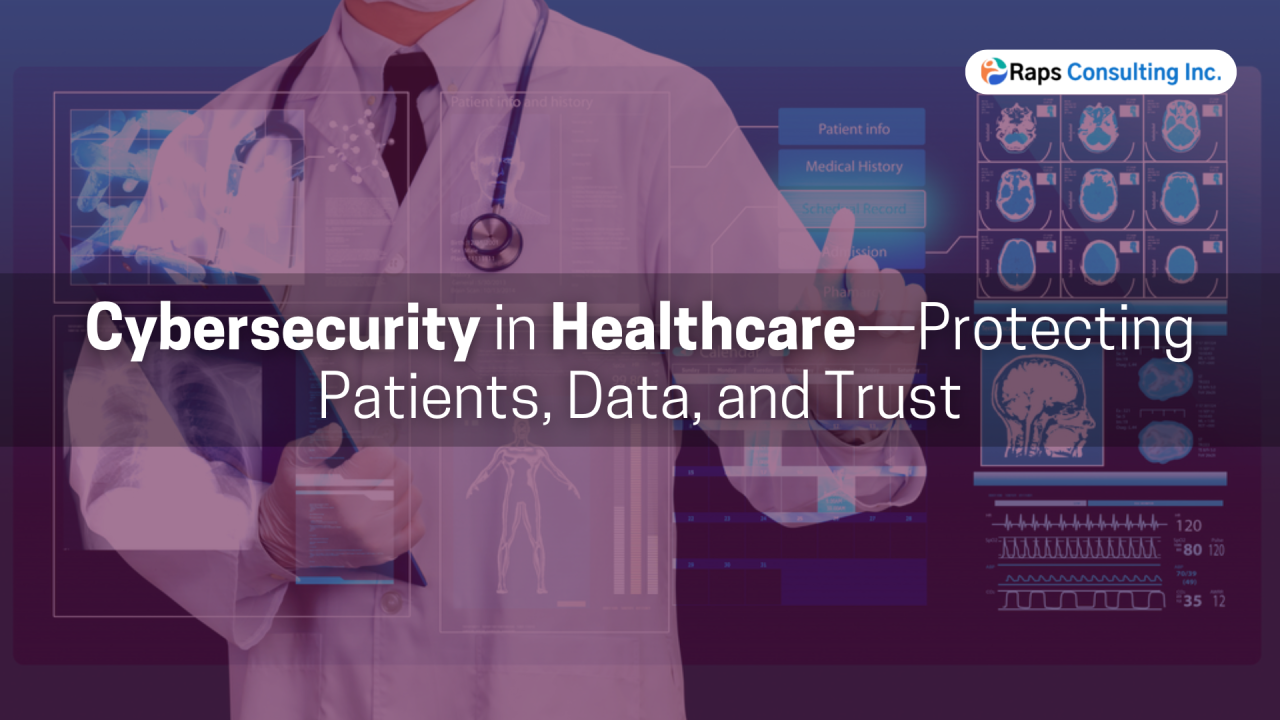Cybersecurity in healthcare is no longer just an IT issue—it’s a patient safety issue. As cyber threats evolve, healthcare organizations across the U.S. are facing a critical challenge: How do you protect sensitive patient data while ensuring uninterrupted care?
The Rising Threat: Why Healthcare is a Prime Target
386 healthcare cyberattacks were reported in 2024 alone, disrupting operations and exposing millions of patient records. AHA.
Ransomware attacks on hospitals can lead to delays in critical care, affecting patient outcomes and eroding trust.
The financial impact is staggering—data breaches cost the healthcare industry $10.93 million per incident on average. IBM Security Report 2024.
Also, Read more here – Securing Cyber Assets in the Digital Age – Strategies for U.S. Organizations
Key Cybersecurity Challenges for Healthcare Leaders in 2024
The healthcare sector faces unprecedented cybersecurity risks—and outdated defenses won’t cut it. As attacks grow more aggressive, organizations must confront these critical vulnerabilities head-on:
🔴 Legacy Systems & Outdated Infrastructure
Many hospitals and clinics still depend on aging software and unsupported systems, creating glaring security gaps. Cybercriminals actively exploit these weak points, targeting unpatched vulnerabilities with ransomware and malware. Modernizing IT infrastructure is no longer optional—it’s a survival imperative.
🔴 Compliance & Regulatory Pressures
With HIPAA, HITECH, and evolving state laws, healthcare providers must balance patient care with stringent cybersecurity mandates. Failure to comply doesn’t just risk fines—it erodes patient trust and invites legal repercussions. Proactive compliance frameworks are now as vital as medical protocols.
🔴 Human Error & Insider Threats
According to the American Hospital Association (AHA), 74% of healthcare breaches stem from employee mistakes or malicious insiders. From phishing clicks to misconfigured databases, human factors remain the weakest link. Continuous training and zero-trust access controls are essential to mitigate this risk.
💡 The Bottom Line
Cyber resilience in healthcare requires more than firewalls—it demands modernized tech, enforced compliance, and a culture of security awareness. Leaders who prioritize these now will protect patient lives, data, and organizational integrity in an increasingly hostile digital landscape.
Also, Read more here – The Healthcare Staffing Shift – Growth, Gaps, and the Path Forward
How RAPS Strengthens Healthcare Cybersecurity
At RAPS Consulting, we help healthcare organizations secure their digital environments with cutting-edge cybersecurity in healthcare solutions, ensuring compliance, data protection, and robust defense against cyber threats:
✔ 24/7 Threat Monitoring & Incident Response – Proactive detection and rapid containment of cyber threats.
✔ HIPAA & Compliance-Driven Security Strategies – Ensuring your systems meet the latest regulatory standards.
✔ Cybersecurity Workforce Solutions – Providing skilled IT security professionals to fortify your defense.
✔ Security Awareness Training – Equipping your team with the knowledge to prevent breaches before they happen.
The Future of Cybersecurity in Healthcare: Staying Ahead of Evolving Threats
The healthcare industry is a prime target for cybercriminals, facing relentless threats like ransomware, data breaches, and phishing attacks. With sensitive patient records, critical infrastructure, and strict compliance requirements, healthcare organizations can’t afford reactive security measures—proactive defense is now a necessity.
As cyber threats grow more sophisticated, so must the solutions. AI-driven threat detection, zero-trust architecture, and continuous employee training are becoming standard. Organizations that invest in advanced security frameworks, real-time monitoring, and expert-led strategies will not only mitigate risks but also build patient trust and avoid costly regulatory penalties.
The stakes have never been higher. A single breach can disrupt care, expose millions of records, and cripple operations. Future-proof cybersecurity requires a blend of cutting-edge technology, robust policies, and a culture of vigilance. The question isn’t if healthcare will be targeted—it’s when. Leaders who act now will secure their systems, their patients, and their future.
Is your healthcare organization prepared to protect patients, data, and trust?
📩 Contact RAPS today to discuss customized cybersecurity solutions that fit your needs.
FAQs
Q1. Why is Cybersecurity Important in Healthcare?
Ans. Cybersecurity is crucial in healthcare to protect sensitive patient data, prevent data breaches, and maintain patient trust and confidentiality.
Q2. How does RAPS help improve cybersecurity in healthcare?
Ans. RAPS provides expert guidance and best practices to strengthen data security and regulatory compliance.
Q3. What are the Consequences of a Data Breach in Healthcare?
Ans. A data breach can lead to financial penalties, legal action, loss of patient trust, and exposure of sensitive patient information, which can affect patient care and organizational reputation.
Q4. What role does RAPS play in securing patient trust?
Ans. By enhancing data protection measures, RAPS helps healthcare providers maintain patient confidence.





